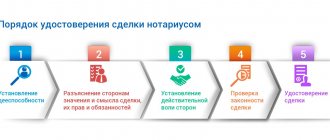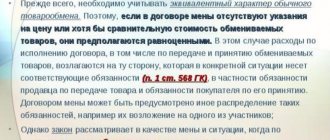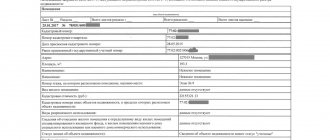Legislation
General provisions on exchange are given in Art. 567 Civil Code of the Russian Federation. In accordance with it, during an exchange, each party must transfer the premises (goods) into the ownership of the other party in exchange for another premises.
In this case, the exchange is carried out according to the rules that are true for the purchase and sale agreement, and each of the parties is both the seller and the buyer of the goods (residential premises).
The basic requirements for an exchange agreement are given in Art. 153-162 Civil Code. Including the need to draw up an agreement in writing if the transaction price exceeds 10,000 rubles.
The current Housing Code of the Russian Federation does not contain the concept of related exchange. When exchanging an apartment with a relative, the law does not provide any benefits. The parties to the agreement are subject to the same exchange rules for all citizens.
Along with the exchange of privatized premises, it is possible to exchange non-privatized residential premises received under a social tenancy agreement, which is stated in Article 72 of the Housing Code.
Legislative side
According to Article 209 of the Civil Code of the Russian Federation, the owner has the right, at his own discretion, to perform any actions not prohibited by law in relation to his property.
A person who owns property has the right to freely dispose of it , including selling, donating, exchanging, and so on. An apartment can be freely exchanged for other property - a plot of land, a car or a room; this is not prohibited by the law of the Russian Federation.
What options are there?
There are only two options for exchanging an apartment for a room: with or without additional payment. Property of equal value can be exchanged without additional payment. The price of an apartment and a room may well be equivalent. For example, a room in the center of Moscow can be equal to the cost of a three-room apartment located in some regional center of Russia.
Reference! The situation with an equivalent exchange of an apartment for a room is rather an exception to the rule; in most cases, an additional payment is charged, representing the difference in the price of the objects.
How to notify other shareholders
The best option for notifying the owners is to send a letter with acknowledgment of delivery to their permanent residence address, in which you need to indicate your intention to exchange the share.
Owners of other shares, by law, have a pre-emptive right to acquire the alienated share. But an essential condition for the exchange is the simultaneous receipt of a share in another apartment. Since the co-owner cannot provide you with someone else’s apartment, he will not be able to interrupt your deal with his intention to purchase. Because of this, many lawyers have doubts about the appropriateness of the legal requirements regarding notification of co-owners during an exchange.
However, you should comply with the law and send a notice to other owners, indicating the price, which will then be stated in the exchange agreement. But, you also need to indicate another essential condition of the transaction - your simultaneous acquisition of a share in another apartment (address).
Next, you need to wait 30 days, and you will be able to dispose of your share at your own discretion.
The sender of the letters will have either a receipt receipt or a letter marked as unclaimed. These documents will be needed to register the transaction.
An alternative to a written notice with a receipt mark is to draw up a notarized waiver of the share by the co-owners at any price and on any terms. To do this, all owners need to be invited to a notary and pay for his services. Each consent will cost approximately 1500 – 2000 rubles.
Read: Giving up a share in an apartment: how to give up and how much it costs
Three options for related share exchange
This is an exchange resulting from purchase and sale, barter or gift . The options parameters are presented in the table. All types of transactions comply with legal requirements. In this case, the rights of co-owners are not violated and emerging tax obligations to the state must be fulfilled.
Information!
With the option of exchanging shares by donation, money is saved significantly. For this reason, most transactions are made this way. We must not forget that only donations between closely related persons are exempt from income tax.
These are spouses, as well as blood relatives - children and parents, grandparents and grandchildren, brothers and sisters. But if a niece and aunt donated their shares in the apartment to each other, taxation remains in force. An additional advantage of donation is that you do not need to obtain the consent of the co-owners of the apartment.
The conditions for other types of transactions (purchase and sale and barter) are the same.
Related exchange in the form of purchase and sale
The purchase and sale of apartment shares between relatives is formalized using a standard document for this case (a real estate purchase and sale agreement). The following points need to be carefully considered:
- description of related parties;
- characteristics of the property (apartment), including technical indicators and cost of the share;
- procedure for completing a transaction;
- circumstances of force majeure and the procedure for imposing fines in case of violation of conditions.
Information!
Documents are drawn up and signed in triplicate for each apartment. One copy is due to the seller, the second to the buyer (related parties). The third set of documents goes for registration with Rosreestr. All documents must be notarized.
Kinship exchange in the form of barter
An exchange agreement is concluded. This document is drawn up in one copy (notarized), which goes for registration with Rosreestr. If the parties want to have the agreement in hand, copies can be made.
Provided that both parties’ housing is not privatized, the exchange agreement must reflect the procedure necessary in this case. It is required to collect a package of documents for submission to the local municipality. This package includes:
- passports of the parties to the transaction;
- two social rent agreements with warrants;
- written consent of the co-owners of the property for the upcoming exchange;
- certificates indicating family composition;
- a document confirming the consent of the trustee bodies, if the owner is a child or an incapacitated person;
- documents confirming the absence of debts for payment of housing and communal services.
This method has the advantage that local authorities will not check whether the value of the shares in the real estate that are to be exchanged is equal. Administration employees do not control the financial side of the transaction, but only look at the composition of the documents and the correctness of their completion. Real cash settlements are usually carried out without the participation of government officials, using a receipt. It is better to transfer money in non-cash form or use the services of a safe deposit box - this increases the security of the financial side of the transaction.
However, it must be taken into account that the local administration may refuse to carry out a related exchange if one of the apartments:
- registered as service housing;
- is unsuitable for habitation;
- located in a building undergoing demolition or in a building currently undergoing major renovations.
Information!
Another situation where local authorities refuse is a socially dangerous disease of one of the parties in a family exchange (for example, tuberculosis), when wide contacts with people are limited or prohibited.
Kinship exchange in the form of gift
The most common option is to exchange shares of housing between related persons. After all, there is no need to pay tax on income and ask the consent of other apartment owners participating in the exchange for the upcoming exchange. A gift agreement (deed of gift) is concluded in two copies. Both must be certified by a notary.
Information!
This type of transaction does not involve cash payments. If they do take place, they are carried out in a personal manner convenient for the parties.
The new share owners send documents to Rosreestr to make adjustments to the registration records.
Apartment share exchange agreement: sample
A sample agreement is here.
AGREEMENT
exchange of shares in ownership of apartments
Ekaterinburg November 12, 2021
Anastasia Vyacheslavovna Petrova, born June 28, 1977, hereinafter referred to as “Party 1”, represented by Dmitry Pavlovich Petrov, born August 18, 1975, acting on the basis of general power of attorney No. 847/37 dated November 10, 2021, on the one hand, and Konstantin Ilyich Malakhov, born on May 28, 1974, hereinafter referred to as “Party 2”, represented by Igor Ilyich Malakhov, born on July 24, 1971, acting on the basis of power of attorney 382/32 dated November 11, 2021, on the other hand, referred to together, the “Parties”, and individually, the “Parties”, have entered into this agreement (hereinafter referred to as the Agreement) as follows.
1. THE SUBJECT OF THE AGREEMENT
1.1. Each Party undertakes to transfer to the ownership of the other Party one share in the ownership of the apartment in exchange for another on the terms and conditions specified in this Agreement.
1.2. Party 1 transfers to Party 2 its 1/2 share in the right of common shared ownership of apartment N64 in the house located at the address: Ekaterinburg, st. Shefskaya, 38, in exchange for the 1/2 share in apartment No. 84 in the house located at the address: Ekaterinburg, st. Sulimova, 33, Side 2 is changing apartment No. 84, which belongs to her by right of ownership, in the building at the address: Sulimova, 33.
1.3. 1/2 share in the right of common shared ownership of apartment No. 64 in a house located at the address: Ekaterinburg, st. Shefskaya, 38, belongs to Party 1 on the basis of donation agreement No. 83/37 dated March 4, 2000. The ownership right of Party 1 to a 1/2 share in the right of common shared ownership of the specified apartment is registered in the Office of the Federal Service for State Registration, Cadastre and Cartography for the city of Yekaterinburg.
Agreement for the exchange of a residential building for an apartment.
Read how to draw up an apartment exchange agreement here.
How to exchange an apartment, read the link:
The specified apartment is located on the 4th floor of a residential brick (reinforced concrete/brick/panel, etc.) building, consists of four rooms, has a total area (including the balcony area with a coefficient) of 140 (one hundred and forty) square meters. m, apartment area 125 (one hundred twenty-five) sq. m. m, including: living area 110 (one hundred and ten) sq. m, utility area 15 (fifteen) sq. m, cadastral N 73:47:8372745:9473, which is confirmed by a certificate issued by the Central BTI of Yekaterinburg.
The inventory estimate of 1/2 share of the said apartment is 5,700,000 (five million seven hundred thousand) rubles.
1.4. 1/2 share in the right of common shared ownership of apartment No. 84 in a house located at the address: Ekaterinburg, st. Sulimova, 33, belongs to Party 2 on the basis of purchase and sale agreement No. 74/4 dated May 3, 2009. The ownership right of Party 2 to a 1/2 share in the right of common shared ownership of the specified apartment is registered in.
The specified apartment is located on the third floor of a residential panel (reinforced concrete/brick/panel, etc.) house, consists of four rooms, has a total area (including the balcony area with a coefficient) of 140 (one hundred and forty) square meters. m, apartment area 125 (one hundred twenty-five) sq. m. m, including: living area 110 (one hundred and ten) sq. m, utility area 15 (fifteen) sq. m, cadastral N 38:83:8384835:8918, which is confirmed by a certificate issued by the Central BTI of Yekaterinburg.
The inventory estimate of 1/2 share of the said apartment is 5,700,000 (five million seven hundred thousand) rubles.
1.5. Each Party guarantees that it is the owner of the property transferred by it, which is not in dispute or under arrest, is not the subject of a pledge and is not encumbered by other rights of third parties.
2. EXCHANGE PROCEDURE
2.1. Exchange under this Agreement is carried out (select the one you need/it is possible to agree on another exchange procedure)
- simultaneously on the following date: December 10, 2021 at the following address: Ekaterinburg, st. Shefskaya, 38 apt. 64
- in the following order: Party 1 transfers the property to Party 2 within the following period: December 10, 2021 at the following address: Ekaterinburg, st. Shefskaya, 38 Party 2 transfers the property to Party 1 within the following period: December 10, 2021 at the following address: Ekaterinburg, st. Sulimova, 33 apt. 84.
2.2. Ownership of the property exchanged under this Agreement passes to the Parties (select the desired one/it is possible to agree on a different procedure for the transfer of ownership):
- simultaneously after the fulfillment of the obligation to transfer property to each of the Parties
- immediately at the time of its delivery, regardless of the fulfillment of the obligation to transfer property by the other Party (this condition is possible if the property, in accordance with clause 2.1 of the Agreement, is transferred at different times).
2.3. Property subject to exchange under this Agreement (select the one you need:
— is assumed to be equivalent. No monetary settlements are made under the Agreement between the Parties.
- is unequal. The difference in the price of the exchanged property is determined according to the Specification and amounts to 100,000 (one hundred thousand) rubles. including VAT 5000 (five thousand) rubles. The Party whose property, in accordance with the Specification, is worth less, must pay an additional amount to the other Party immediately before or after the transfer of the property to it (it is possible to agree on a different period for additional payment of the difference in price)).
3. RESPONSIBILITY OF THE PARTIES
3.1. For violation of the deadlines for the transfer of property (clause 2.1 of this Agreement), a bona fide Party has the right to demand from the other Party payment of a penalty in the amount of 15 percent of the value of the property specified in the Specification, the transfer deadline of which was violated, for each day of delay.
An additional option if the shares to be exchanged are unequal:
3.2. For violation of the deadlines for making additional payments (clause 2.3 of the Agreement), a bona fide Party has the right to demand from the other Party payment of a penalty (fine) in the amount of 150,000 (one hundred fifty thousand) rubles. from the unpaid amount for each day of delay.
3.3. In all other cases of failure to fulfill obligations under the Agreement, the Parties are liable in accordance with the current legislation of the Russian Federation.
4. FORCE MAJEURE
4.1. The Parties are released from liability for non-fulfillment or improper fulfillment of obligations under the Agreement in the event of force majeure, that is, extraordinary and unavoidable circumstances under given conditions, which are understood as: the following cases, the list of which is defined at the legislative level (prohibitory actions of authorities, civil unrest, epidemics , blockade, embargo, earthquakes, floods, fires or other natural disasters).
4.2. If these circumstances occur, the Party is obliged to notify the other Party about this within 5 (five) days.
4.3. A document issued to a party regarding the existence of force majeure circumstances (by the Chamber of Commerce and Industry, an authorized government agency, etc.) is sufficient confirmation of the presence and duration of force majeure circumstances.
4.4. If force majeure circumstances continue to apply for more than one month, then each of the Parties has the right to terminate the Agreement unilaterally.
5. FINAL PROVISIONS
5.1. The transfer of ownership of the specified shares in the ownership of apartments is subject to state registration with the authorities that carry out state registration of rights to real estate and transactions with it.
5.2. This Agreement is drawn up in four copies having equal legal force, two of which are stored in the Office of the Federal Service for State Registration, Cadastre and Cartography for the city of Yekaterinburg (name of the body carrying out state registration of rights
on real estate and transactions with it)
and one copy for each of the Parties.
5.3. The following are attached to the Agreement:
— Specification (Appendix No. 1)
ADDRESSES AND DETAILS OF THE PARTIES
Side 1
- Registration address: 737901, Ekaterinburg, st. Lineinaya, 39 kv. 31;
- Postal address: 737901, Ekaterinburg, st. Lineinaya, 39 kv. 31;
- Phone fax;
- Passport series, number: 73 74 No. 847793;
- Issued by: Kirovsky Department of Internal Affairs of Yekaterinburg;
- When issued: March 12, 2009.
- Signature: __________________A.V. Petrova
Side 2
- Registration address: 737901, Ekaterinburg, st. Zavodskaya, 38 kv. 84;
- Postal address: 737901, Ekaterinburg, st. Zavodskaya, 38 kv. 84;
- Phone fax;
- Passport series, number: 73 74 No. 847714;
- Issued by: Kirovsky Department of Internal Affairs of Yekaterinburg;
- When issued: March 12, 2008;
- Signature: ____________________K.I. Malakhov
State duty, expenses
There are notary and government expenses when making an exchange of shares. Tariffs are standard, but depend on the situation in the region:
- certification from a notary – 0.5% of the contract amount , but not less than 300 rubles;
- notary services (UPTH) – from 1,000 to 7,000 rubles ;
- drawing up a draft exchange agreement - from 500 rubles and above ;
- The state duty for registration in Rosreestr is 2,000 rubles per owner .
It happens that money does not appear in the transaction, but this does not negate its connection with purchase and sale. Hence the calculation of the state duty for approval of the agreement by a notary - % of the agreement price.
Taxes
One of the responsibilities of exchange participants is to file a tax return on receipt of income from the transaction. The personal income tax rate is 13% of the difference between the cost of shares in apartments (for example, one costs 300,000 rubles, and the second 150,000 rubles - which means the difference is 150,000 rubles).
Exchange of shares in different apartments
The basis for exchanging shares in different apartments is an exchange agreement.
Since the exchange of a share has the characteristics of a sale of a share, preparation for the transaction should be the same as for the sale and purchase. Therefore, it is necessary to notify the owners of the remaining shares about the upcoming alienation of the share in accordance with clause 2 of Art. 250 Civil Code of the Russian Federation.
Exchange of shares between relatives in non-privatized housing
To carry out a transaction, the mandatory consent of all persons living in the same apartment with the exchanging party is required. The exchange procedure is regulated by Article 72 of the RF Housing Code. Objects can be located either in the same apartment or in different localities.
To complete a transaction, an agreement must be concluded between the parties. The document is drawn up in three copies: one remains with the parties and one is transferred to the local administration.
After the exchange is officially registered, the previous social rental agreements are canceled, and new agreements are concluded between the parties and the city administration on the transfer of municipal housing to the tenant.
In order to exchange non-privatized shares between relatives, an appropriate application must be submitted on behalf of all participants (not only those who enter into the transaction, but also those who own neighboring shares) to the local administration. Consideration of the application will be carried out within 10 days from the date of acceptance of the documents for work.
Required documents
The parties must submit a package of the following documents to the administration of the locality:
- passports of all participants and their copies;
- social rent agreements for shares/movement orders;
- certificates on the family composition of the exchanging parties;
- consents to the transaction of the employers of the remaining shares;
- permissions for the transaction from guardianship and trusteeship (if minors live in the exchanged rooms);
- receipts confirming the absence of debts to utility services.
When an exchange may be refused
According to the provisions of Article 73 of the RF Housing Code, the administration has the right to a reasoned refusal to issue an exchange permit. The following situations may be the reasons for a negative decision:
- one or both of the shares are in disrepair and are not suitable for habitation;
- the right to use housing is secured by a court decision;
- the housing specified in the exchange agreement is located in a house that is being demolished;
- the participant in the transaction has a chronic disease, due to which he poses a danger to the health of others;
- the residential building needs major renovation;
- the parties are trying to exchange office housing;
If you think that the refusal to exchange was issued unfairly, you can always appeal it in court.
If the shares are not equal
From an official point of view, the exchange of shares in municipal housing between relatives is a free transaction. In real life, sometimes owners of a larger share require additional payment. The parties must agree on the financial side of the transaction independently, but this fact will not be recorded anywhere when registering the exchange.
Example. Anton and Sergey Ivanov, are tenants of municipal housing, live in the same city in different areas. Anton owns two large rooms in a three-room apartment, Sergei lives with his family in one room in a two-room apartment. After Sergei’s child was born, the brothers decided to exchange shares, but Anton asked 300 thousand rubles for the second room. The parties signed a corresponding agreement between themselves, where they indicated the amount and deadline for its transfer. When preparing documents for housing, they did not provide this agreement. After all the legal issues were settled, Sergei transferred 300 thousand to Anton’s bank account, and Anton, in turn, confirmed the transfer of money with a receipt.
Exchange of shares in privatized housing
To register a transaction with privatized shares, permission from the local administration is not required; it is enough to simply register the exchange in Rosreestr.
Required documents
In order to officially register the exchange agreement, a number of other documents should be attached to it and all papers should be submitted to Rosreestr or the MFC.
So, the registrar needs to provide:
- An exchange agreement, which must contain information about the size of the shares, their value and technical condition.
- Passports of the parties.
- Papers confirming the relationship between the parties.
- Title documents for each share (extract from the Unified State Register of Real Estate).
- Notarized consent of the remaining owners to the transaction.
- Notarized consent of the second spouse (if the share is jointly acquired property).
- Permission to exchange guardianship authorities (if a child lives in one of the rooms).
- Certificates confirming the absence of encumbrances on the objects.
- Receipts for payment of state fees.
- Technical passports of apartments.
Agreement
The document that confirms the agreement of the parties to exchange their shares must indicate the following information:
- correct name;
- Date of preparation;
- the locality where it is located;
- description of the size of each share, its location;
- terms of exchange;
- signatures of the parties;
- notarization of the legality of the transaction.
If the shares are not equal
According to the law, if the sizes of the shares differ significantly, the party whose living conditions have become better as a result of the exchange is obliged to financially compensate for the losses in square meters to the second party. But, since such transactions most often occur between relatives, for example, parents and children, the financial side of the issue fades into the background.
If you want to simply re-register the shares and not pay anything to anyone, instead of an exchange agreement, you can draw up two deeds of gift. Then the size of the shares, and accordingly their value, will not be taken into account in any way.
From 2021, registration of a transaction for the alienation of a share in an apartment, including exchange, with a notary is mandatory. The state representative will competently and taking into account the interests of all parties draw up an agreement, prepare an application for Rosreestr, and as soon as the registration is completed, he will give you extracts from the Unified State Register of Real Estate confirming the transfer of ownership rights. However, his services are quite expensive. You can read about this in our article “How much does a contract for donating a share of an apartment cost from a notary?” Therefore, it is better to contact a lawyer to draw up the contract, and then have it certified at a notary’s office.
Re-registration costs
In order to register an exchange agreement in Rosreestr, even if the shares are not very different in area and no one has to pay extra for them, some financial investments will be required:
| State duty to the Rosreestr for making changes to the Unified State Register of Real Estate | 2000 rubles on each side. |
| Notary services for certification of agreements | from 500 rubles, the price depends on the amount of work. |
| Legal services (consultation, drafting contracts) | from 1000 rubles, not a mandatory expense item, but it is not advisable to neglect it. |
Procedure
Where to start searching and where to go?
- To solve this issue, you can turn to the Internet, where there are many sites filled with offers to exchange housing.
- It is worth paying attention to social networks. Many of them have groups where exchanges are offered. There you can find a detailed description of the property with photographs, as well as ask questions.
- In the end, there are professional real estate offices where they will select an exchange option in accordance with your wishes.
Required documents
Having chosen a suitable exchange option, you need to check its legal purity , and on your part, also be ready to provide the same package of documents.
You can obtain reliable information about the property of interest by contacting Rosreestr and ordering an extract from the Unified State Register of Real Estate about the property, its cadastral number, area, cadastral value, encumbrances and arrests. There you can also order a special extract about the history of transactions with the property - about the registration of the transfer of ownership rights. It is needed to analyze the risks of the transaction.
When purchasing a room, there is one difficulty. According to current legislation (Article 250 of the Civil Code of the Russian Federation), neighbors have the right of first refusal to purchase residential premises that are in shared ownership.
Only in case of their written refusal does the person wishing to sell his share have the right to sell it to another buyer. It should be remembered that the price at which it is decided to sell this property must be the same for both neighbors and third parties. Otherwise, the entire procedure will have to start again.
Important! The period within which interested parties (that is, neighbors) must respond to the notice of sale of the room is one month.
But a waiver of the right of first refusal may be obtained earlier than this period. It must be in writing. Failure to comply with the above requirements may result in the transaction being contested.
To complete the exchange, the parties must collect the following package of documents:
- Extract from the Unified State Register confirming ownership. It must be received no earlier than three days before applying for registration.
- Certificate from the BTI (cadastral or technical passport).
- Exchange agreement in two copies.
- Two applications for registration of property rights from the exchangers.
- Consent of the remaining residents of the apartment (the room from which the room is being exchanged) and adult family members. If minors under 14 years of age are registered in the apartment, then the written consent of their official representatives is required to carry out the transaction. From the age of 14, the consent of the minor is required.
- Passports of persons participating in the transaction. If the party is represented by a trusted person, then a notarized power of attorney is required.
- A certificate confirming that the owners have no debt for utility services in relation to each property.
- The act of acceptance and transfer of apartment and room.
- Receipts for payment of state fees.
- If an apartment or room has been remodeled, there must be a document confirming its legality.
- If a minor is registered in any of the properties, permission for the transaction will be required from the guardianship and trusteeship authorities.
- Notarized consent of the spouse, if the property is joint property. It is not required if the property was acquired before marriage or received by inheritance or gift.
Determining prices and surcharges
To determine the price of a room and an apartment, you need to look through advertisements for the sale of similar objects and display the average amount for each.
Reference! To calculate the surcharge, the average cost per square meter of area is taken.
You can find out the cost of the surcharge by comparing real estate market prices. You need to subtract the area of the room from the area of the apartment, and multiply the resulting result by the average cost of 1 sq.m. This will be the amount of the surcharge.
Conclusion of an agreement
The exchange procedure can be carried out in two ways: by purchase and sale or by concluding an exchange agreement.
The first case is more cumbersome, since two contracts are concluded - for an apartment and a room. This will take more time, you will have to prepare twice as many documents, and spend more money for registration. In addition, this method is risky, because... it is used for fraudulent schemes.
Most people who exchange housing choose the second path and enter into an exchange agreement. The exchange agreement must indicate detailed characteristics of the exchanged premises:
- name and location;
- square;
- number of storeys of the building;
- purpose and other parameters;
- The cost of housing must be stated.
The agreement can be drawn up by the parties independently or with the help of a qualified specialist.
Since the room is a share of real estate, such an agreement must be certified by a notary. Contacting a notary will serve as an additional guarantee of the security of the transaction.
Features of the agreement between relatives
Often in practice there is an exchange agreement for a share or a room between relatives. This type of exchange does not imply any concessions in the collection of documents or in the registration process. The same paperwork will be required as in other cases, and there are no tax benefits.
Terms and cost of the transaction
A state fee of 2,000 rubles is charged for registering property rights. For registration of an exchange agreement, a notary will take (Article 333.24 of the Tax Code of the Russian Federation) 0.5% of the agreement amount, but not less than 300 rubles and not more than 20,000 rubles.
In addition, most transactions go through realtors, because... checking the legal cleanliness of a home is a very troublesome task and not everyone can do it. Their services average 2–3% of the transaction cost.
Attention! The deadline for receiving documents evidencing the transfer of ownership is 7 working days from the date of receipt of the application if submitted to Rosreestr and 9 working days from the date of receipt if the papers were submitted through the MFC.
How does registration work?
Registration of the transaction is carried out by Rosreestr. Documentation can be sent in the following ways:
- In person, by contacting the territorial office of the registration authority.
- By contacting special multifunctional centers.
- By sending documents by post. The applicant’s signature in the application, as well as the transaction itself subject to state registration, is certified by a notary; the set of documents includes a copy of the identity document of the applicant or his representative, for example a passport (see paragraph 12 of Article 18 of Law No. 218 “On State Registration of Real Estate”).
- Using the government services website or the official portal of Rosreestr. In this case, the application is filled out electronically by the applicant himself and signed with his electronic signature. The supporting documents are attached either in electronic form or in the form of electronic images.
Exchange of shares with a minor child between relatives
If children under 18 years of age are involved in the exchange, there will be no special differences from a transaction with adults. But there is one significant nuance...
The new share of the minor child should not be less than that which goes to the second participant in the exchange.
If it turns out that the exchange is not in favor of the interests of the child, the guardianship authorities will not give permission. Consequently, Rosreestr will not approve the deal.
Example:
The couple divorced: the mother remained with her 12-year-old child, and the father moved out of the apartment. The question arose about the division of housing and the implementation of the father's share. The parents decided to arrange an exchange of the father’s share for the share of their minor son, without any additional payments. According to the documents, the husband owned ½ of the marital apartment in shared ownership. The child had a share in the grandmother's apartment, which was equal to ¼ share in common law. The couple contacted the local department of the guardianship authority - they indicated that they wanted to exchange shares in favor of their son, so that his new share would be greater than the previous one (exchange ½ to ¼). Considering that the interests of the child were fully respected, the PLO issued a stamped authorization certificate.
Agreement for the exchange of shares of an apartment with a minor (sample)
Apartment share exchange agreement: form
The contract form is here.
AGREEMENT
exchange of shares in ownership of apartments
date and place of signing
_________________, hereinafter referred to as "Party 1", represented by _________________, acting__ on the basis of _________________, on the one hand, and _________________, hereinafter referred to as "Party 2", represented by _________________, acting__ on the basis of _________________, on the other hand, referred to together as " The Parties”, and individually the “Parties”, have entered into this agreement (hereinafter referred to as the Agreement) as follows.
1. THE SUBJECT OF THE AGREEMENT
1.1. Each Party undertakes to transfer to the ownership of the other Party one share in the ownership of the apartment in exchange for another on the terms and conditions specified in this Agreement.
1.2. Party 1 transfers to Party 2 its ______________ share in the right of common shared ownership of apartment N _____ in the house located at the address: _________________, in exchange for the _____ share in apartment N _____ owned by Party 2 in the right of common shared ownership in the house located at: _________________ , Party 2 is changing the apartment N ___ owned by it in the house at the address: _____________________.
1.3. _______________ share in the right of common shared ownership of apartment No. ______ in the house located at the address: _________________ belongs to Party 1 on the basis of _________________. The ownership right of Party 1 to _______ share in the right of common shared ownership of the specified apartment is registered in ____________________________.
The specified apartment is located on the _________ floor of a residential ___________________ (reinforced concrete/brick/panel, etc.) building, consists of __________ rooms, has a total area (including the area of the balcony with a coefficient) ______ (___________) sq. m. m, apartment area ______ (___________) sq. m, including: living area ______ (___________) sq. m, utility area ______ (___________) sq. m, cadastral N _________________, which is confirmed by _.
The inventory estimate of the ___________ share of the specified apartment is ______ (____________) rubles.
1.4. _______________ share in the right of common shared ownership of apartment No. _______ in the house located at the address: _________________ belongs to Party 2 on the basis of ___________________. The ownership right of Party 2 to _______ share in the right of common shared ownership of the specified apartment is registered in.
The specified apartment is located on the _________ floor of a residential __________________ (reinforced concrete/brick/panel, etc.) building, consists of __________ rooms, has a total area (including the area of the balcony with a coefficient) ______ (___________) sq. m. m, apartment area ______ (___________) sq. m, including: living area ______ (___________) sq. m, utility area ______ (___________) sq. m, cadastral N _________________, which is confirmed by __.
The inventory estimate of the ___________ share of the specified apartment is _____ (_____________) rubles.
1.5. Each Party guarantees that it is the owner of the property transferred by it, which is not in dispute or under arrest, is not the subject of a pledge and is not encumbered by other rights of third parties.
2. EXCHANGE PROCEDURE
2.1. Exchange under this Agreement is carried out (select the one you need/it is possible to agree on another exchange procedure)
- simultaneously within the following period: “___”__________ ____ at the following address: ____________________
- in the following order: Party 1 transfers the property to Party 2 within the following period: “___”__________ ____ at the following address: ____________________ Party 2 transfers the property to Party 1 within the following period: “___”__________ ____ at the following address: ____________________.
2.2. Ownership of the property exchanged under this Agreement passes to the Parties (select the desired one/it is possible to agree on a different procedure for the transfer of ownership):
- simultaneously after the fulfillment of the obligation to transfer property to each of the Parties
- immediately at the time of its delivery, regardless of the fulfillment of the obligation to transfer property by the other Party (this condition is possible if the property, in accordance with clause 2.1 of the Agreement, is transferred at different times).
2.3. Property subject to exchange under this Agreement (select the one you need:
— is assumed to be equivalent. No monetary settlements are made under the Agreement between the Parties.
- is unequal. The difference in the price of the exchanged property is determined according to the Specifications and amounts to _____ (__________) rubles. including VAT _____ (__________) rub. The Party whose property, in accordance with the Specification, is worth less, must pay an additional amount to the other Party immediately before or after the transfer of the property to it (it is possible to agree on a different period for additional payment of the difference in price)).
3. RESPONSIBILITY OF THE PARTIES
3.1. For violation of the deadlines for the transfer of property (clause 2.1 of this Agreement), a bona fide Party has the right to demand from the other Party payment of a penalty (fine) in the amount of _____ percent of the value of the property specified in the Specification, the transfer deadline of which was violated, for each day of delay.
An additional option if the shares to be exchanged are unequal:
3.2. For violation of the deadlines for making additional payments (clause 2.3 of the Agreement), a bona fide Party has the right to demand from the other Party payment of a penalty (fine) in the amount of _____ (__________) rubles. from the unpaid amount for each day of delay.
3.3. In all other cases of failure to fulfill obligations under the Agreement, the Parties are liable in accordance with the current legislation of the Russian Federation.
4. FORCE MAJEURE
4.1. The Parties are released from liability for non-fulfillment or improper fulfillment of obligations under the Agreement in the event of force majeure, that is, extraordinary and unpreventable circumstances under given conditions, which mean: _____________________ (prohibitory actions of authorities, civil unrest, epidemics, blockade, embargo, earthquakes, floods , fires or other natural disasters).
4.2. If these circumstances occur, the Party is obliged to notify the other Party about this within _____ days.
4.3. A document issued by _________________________ (Chamber of Commerce and Industry, authorized government agency, etc.) is sufficient confirmation of the presence and duration of force majeure circumstances.
4.4. If force majeure circumstances continue to apply for more than _________________, then each of the Parties has the right to terminate the Agreement unilaterally.
5. FINAL PROVISIONS
5.1. The transfer of ownership of the specified shares in the ownership of apartments is subject to state registration with the authorities that carry out state registration of rights to real estate and transactions with it.
5.2. This Agreement is drawn up in four copies having equal legal force, two of which are stored in __ _________________ (name of the body carrying out state registration of rights to real estate and transactions with it) and one copy for each of the Parties.
5.3. The following are attached to the Agreement:
— Specification (Appendix No. 1)
ADDRESSES AND DETAILS OF THE PARTIES
Side 1
- Registration address: ______________________________
- Mailing address: ______________________________
- Phone fax: ______________________________
- Passport series, number: ______________________________
- Issued by: ______________________________
- When issued: ______________________________
- Signature: ______________________________
Side 2
- Registration address: ______________________________
- Mailing address: ______________________________
- Phone fax: ______________________________
- Passport series, number: ______________________________
- Issued by: ______________________________
- When issued: ______________________________
- Signature: ______________________________
If an exchange with unequal shares
The difference in the size of the shares does not prevent the exchange transaction. Typically, in such cases, the owner of the smaller share pays compensation to the other participant. This is true even with family ties, but most often close people do not take money for the exchange.
If you are exchanging unequal shares, agree on the amount of compensation. It is advisable to draw up a separate agreement on the transfer of money. The recipient will issue a receipt indicating that he accepted the money. There is no need to submit the money agreement for registration - this is an agreement between close people.
Is it possible to exchange upon entering into an inheritance?
Such operations are not prohibited by law. However, their direct implementation is permissible only after entering into inheritance rights and undergoing a standard notarial registration procedure. Then you will have to wait another 6 months to be able to dispose of the property without restrictions. This standard period is necessary to ensure that there are no other claimants to the inheritance.
Exchange of shares by inheritance
If there is no will, the heirs have the right to distribute the inheritance among themselves.
By agreement between them, in the presence of a notary, shares can be exchanged. For example, the testator owns an apartment, a country house and a car. Of the heirs, there are only two sons, who should receive ½ for each type of real estate. But the brothers made an agreement among themselves that the car and the country house would immediately become the property of one brother, the apartment - the other. The notary will prepare a certificate for each heir taking into account their agreement.
Moreover, if the market value of the distributed property is not the same, no one pays the difference to anyone.
If there is a will, it will not be possible to distribute the property by agreement. The notary will enter the relatives into the inheritance exclusively in the manner specified in the will, fulfilling the will of the testator. Then the heirs can re-register rights to the real estate through an exchange transaction.
When can you not exchange shares in apartments?
The law restricts the exchange of shares if the housing does not meet technical standards. If the apartment belongs to municipal authorities, they may issue a refusal on the basis of Art. 73 Housing Code of the Russian Federation.
Exchange of shares is not possible in the following cases:
- the residential building is in disrepair;
- the building is subject to immediate demolition (see “Demolition of privatized housing”);
- injunction on transactions with housing: exchange, donation, purchase and sale, pledge;
- one of the exchange participants has a chronic disease;
- The parties plan to enter into an agreement for the exchange of official housing (see “Privatization of official housing”).
The main reasons are related to the breakdown of the house, and therefore the share in the apartments. The decision to refuse can be appealed in court, but for this it is better to enlist the support of a lawyer.
Taxation
In accordance with Article 567 of the Civil Code of the Russian Federation, exchange and purchase and sale are equivalent , therefore a tax of 13% is applied. But only if there is an additional payment for exchange. Interest is calculated based on its amount.
It is worth noting that the tax is paid if the property has been owned by the owner for less than 3 years. But if the additional payment is less than 1 million rubles, then in this situation no tax is paid. And if more, then it is calculated from the amount exceeding 1 million.
Often the exchange of an apartment for a room is associated with a deterioration in living conditions, so there is no need to rush into such transactions. First of all, it is worth considering options for exchanging an apartment for another with a lower cost. However, in this case, special attention must be paid to completing the transaction, since the best prices are usually offered by scammers.
How can you replace an exchange transaction between relatives?
An alternative option for one transaction of exchange of shares between close relatives is two transactions of gift.
Close relatives: brothers and sisters, grandparents and grandchildren, parents and children, spouses - in case of a gift transaction do not have to pay 13% income tax. Aunt, uncle and nephews do not belong to this category, and when donating, they will be forced to lose 13% of the cadastral value of housing.
When donating a share, as well as when exchanging shares, you will need to pay for the services of a notary. Choose for yourself which deal is best to apply; this will largely depend on the relationship between relatives. But, the exchange of shares between relatives is no different from the exchange of shares between any other people.
Three important exchange points: Rosreestr, notary, taxes
Regardless of the form in which relatives exchanged shares in the property they own, all documents related to the transaction are drawn up by a notary. The notary certifies the authenticity of contracts with his signature and seal.
The next step will be registration of new documents in the Unified State Register of Real Estate . It is done by the shareholders themselves (in the MFC) or by a notary. Registration of submitted documents is not an automatic process. First, the correctness of the exchange will be checked, the presence of encumbrances, injunctions, and debts in terms of real estate taxes. If everything is in order, new entries are made in the Rosreestr database - the real estate transaction can be considered completed.
The need to pay tax on a related exchange of shares arises if these shares have different values. This legal requirement remains in effect even if the price difference is minor. What can be exempt from income tax? The tenure of real estate is more than 3 years (if the property was registered before January 1, 2021) or more than 5 years (if after the above date). The personal income tax return must be submitted to the tax office no later than April 30 of the year following the conclusion of the transaction. Payment must be made by July 15 (inclusive).
Registration of exchange
There are three main ways to exchange shares between relatives:
- Barter agreement . In this case, a share exchange agreement is concluded, which stipulates the obligations and rights of all parties involved in the transaction; in addition, the text of the agreement may reflect an additional payment, if any.
- Agreement for the purchase and sale of shares . This is a more reliable way to protect your rights if such a need arises. In this case, two contracts for the purchase and sale of real estate are concluded. Each of the parties to the transaction will act as a buyer in one agreement, and as a seller in the second. The obvious disadvantage of this method is the cost of preparing and registering each agreement, as well as the need to pay income tax on each transaction.
- Gift agreements . Concluding two gift agreements between relatives will avoid the need to pay taxes that may arise in previous cases. This method is especially relevant when exchanging unequal shares.
In order to legally formalize the exchange of shares, you will need to conclude an appropriate agreement.
The agreement on the exchange of shares is drawn up in three copies, each of which is signed by all parties involved in the transaction. One copy remains with each party to the transaction, and the third copy is sent to the municipality (in the case of an exchange of shares based on a social tenancy agreement) or to the Rosreestr branch (in the case of an exchange of shares in privatized apartments). Particular attention should be paid to the form of the agreement and its content.
The text of the exchange agreement must contain the following information:
- Name of the document, date and place of its preparation,
- Personal information of the parties to the agreement - full name, passport details, addresses at the place of registration,
- Detailed descriptions of the real estate objects that are the subject of the transaction, as well as information on their market value,
- A clause stating that the parties have no claims against each other regarding the quality of the objects being delivered,
- The clause on the absence of any encumbrances on the transferred objects,
- A clause on the division of costs associated with concluding an agreement and conducting a transaction,
- Information on the timeframes allocated for the physical vacation of real estate and the relocation of owners,
- The moment from which the contract comes into legal force
- Signatures of the parties and their transcript.
Do I need to obtain the consent of other owners?
Consent to the transaction from other owners is a prerequisite for the transaction. If they do not agree, they have a priority right to buy out this part of the property; they can buy the share being sold at the price set by the seller. If other owners refuse to purchase, then the owner of the share can dispose of it at his own discretion.
Stages of a transaction for the exchange of shares between relatives:
- Obtaining permission from other homeowners. To do this, it is necessary to obtain from them consent to carry out the transaction in writing or a waiver of the rights of priority purchase of the share being sold.
- Obtain written permission to carry out the transaction from citizens registered in the apartment.
- Check that there are no utility debts.
- After completing the above preparatory stages for the transaction, you can start looking for options for exchange. You can do this yourself through advertisements on the Internet or in local newspapers, or use the services of realtors.
- When a successful option for exchange is found, all details of the transaction are discussed and the final terms are included in the exchange agreement. You can draw up the contract yourself, using this sample contract as a basis, or use the services of a notary or lawyer.
IMPORTANT You can exchange shares both in a privatized apartment and in a non-privatized one. The procedure and package of documents will be slightly different in both cases. It is impossible to exchange a share in a privatized apartment for a share in non-privatized housing (and vice versa).
Exchange of shares in privatized apartments
In the case of privatized housing, additional approvals from third parties will not be required. Registration of the agreement in this case will take place in Rosreest. Such transactions do not require the involvement of a notary, but his presence can ensure the legality of the transaction in the event of disputes arising in the future. In this case, the costs of the transaction, in addition to paying the state duty, will include the costs of notary services.
To carry out state registration you will need:
- An exchange agreement, which must indicate the size of the shares, their market value, characteristics of the real estate in which they are located,
- Civil passports of all parties to the transaction,
- Documents on the basis of which it is possible to establish family relationships between the parties to the transaction (birth certificates, marriage registration, etc.),
- Extracts from the Unified State Register, which will confirm ownership of the objects of exchange,
- Notarized consent of the remaining owners to conclude the transaction,
- Notarized consent of the spouses to the transaction, if the parties to the transaction are in a registered marriage,
- Written consent to the transaction from the guardianship and trusteeship authorities, if minors or incapacitated citizens are registered in the apartments participating in the transaction,
- An extract from the Unified State Register confirming the absence of arrests and encumbrances on the real estate involved in the transaction,
- Technical data sheets, floor plans and explications of the houses in which the exchanged shares are located.
Exchange of unequal shares in privatized apartments
The exchange of shares that correspond to each other in area and cost is quite a rare occurrence. Most often in practice there is an exchange of unequal shares. In this case, the law requires additional payment from the party that receives a larger share. This requirement can be circumvented by transferring the share not through an exchange agreement, but through the execution of a deed of gift for both shares.
In the case of a donation, the size and value of the shares will not have any significance. In this case, each transaction is carried out and registered separately. It is better to draw up these types of transactions with the help of a notary, who will prepare the documents himself, submit them to Rosreestr and, upon completion of registration, issue the parties with certificates of transfer of ownership rights and an extract from the Unified State Register.
Exchange of shares in apartments where minor children are registered
The legislation of the Russian Federation obliges citizens to respect the rights of minors when conducting real estate transactions. To this end, there is a mandatory requirement for all transactions involving minor children to obtain permission for the transaction from the guardianship and trusteeship authorities. Without this permission, any transaction in which the rights and interests of a minor are violated may be declared invalid in court.
This applies not only to children who own real estate, but to children who are simply registered in the apartment. Thus, deregistration of a child in an apartment that will participate in a real estate transaction may serve as a ban on the transaction by the guardianship authorities.
Minor children can become participants in an exchange transaction when they reach the age of 14. Even in this case, permission from the guardianship authorities will be required, as well as written consent to the transaction from the parents or guardians. In the absence of the above documents, the transaction will be declared invalid. The only exception that does not require the consent of parents and guardianship authorities is the recognition of a minor as fully capable until the age of 18.
Exchange of shares under a social tenancy agreement
The conclusion of an agreement for the exchange of shares owned on the basis of a social tenancy agreement actually cancels the previous agreement, which is why it is necessary to submit the exchange agreement to the municipality. On its basis, new social tenancy agreements will be drawn up for the transfer of housing to new tenants. In this case, the application must be submitted from all owners of shares in one and the other real estate, and not just from those who are directly exchanging. New social employment contracts are prepared within 10 days from the date of application.
In addition to the application, you will need to submit the following documents to the city administration:
- Copies of civil passports of all owners of shares in both apartments,
- Orders for the right to move in and permission from the administration to move into housing,
- Certificates of family composition for each apartment,
- Written consent to the exchange from employers who did not participate in the exchange,
- In the case of minors or incapacitated persons living in an apartment - permission from the guardianship and trusteeship authorities,
- Extracts from the apartment’s personal account indicating the absence of debt on utility bills.
Other Important Aspects
If the co-owners of the property are minors, you need to very carefully prepare the related exchange transaction . Everything related to the rights of minors is supervised by the guardianship authorities. There you will need to receive a document confirming their consent to the exchange. Trustee bodies control the equivalence of the exchanged shares of property so that the interests of the child are not infringed in any way.
In modern legal practice, all of the above-described options for related exchange of shares in housing are encountered. Such an exchange is carried out according to standard rules; no preferential treatment is provided for related persons. If a transaction results in a profit for one party or another, it becomes necessary to pay income tax.
What else to pay attention to
You should especially carefully check exchanges with shares of apartments of minors. Such situations are controlled by the guardianship and trusteeship authorities; in order to carry out the exchange, their consent must be obtained. The equivalence of the transferred and received parts of the property is checked to ensure that the interests of the child are fully respected.
All of the above methods are used in practice. The general rules do not provide any special advantages if the exchange of shares is carried out by relatives. Like other individuals, they are required to pay tax on their profits.









